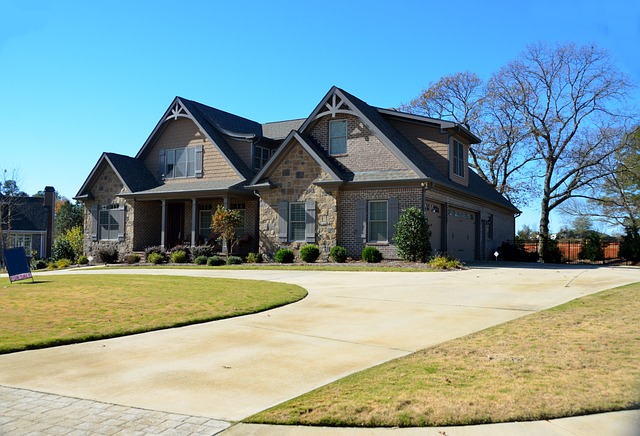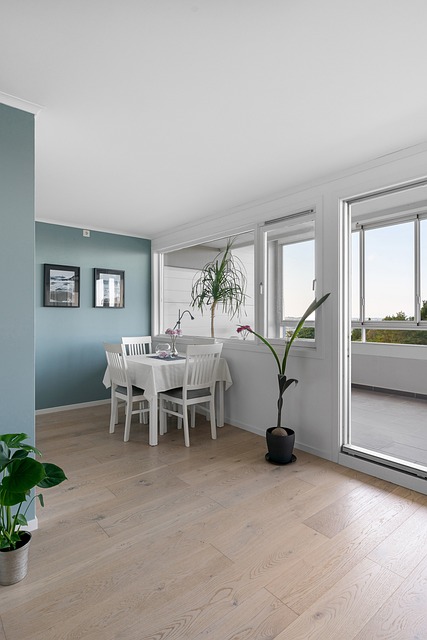2023 has seen a resurgence of interest in Singapore's Executive Condos (ECs), which are designed for married couples and first-time public flat owners looking to transition from public to private housing. To qualify, applicants must be Singaporean citizens, at least 21 years old, and meet income ceilings set by the Housing & Development Board (HDB). ECs are intended for use-intention families rather than speculative investors, with a five-year minimum occupation period (MOP) before they can be sold to both Singaporeans and permanent residents. After ten years from the development's Temporary Occupation Permit (TOP), these leasehold properties may also be sold without restriction. The Executive Condo Requirement stipulates that at least one applicant must be a Singapore citizen, which aligns with the government's aim to maintain a balance between owner-occupiers and investors. Investors should consider the lease duration, economic trends, and policy changes to maximize their investment potential in this unique segment of the property market. Strategic financing options are available through HDB grants or concessionary loans, as well as commercial bank loans, each with its own conditions and interest rates. Understanding the Executive Condo Requirement and the market dynamics is crucial for successful investment and resale opportunities within Singapore's EC landscape.
Exploring the real estate landscape of Singapore’s Executive Condos (ECs) presents a unique opportunity for investors seeking a blend of residential comfort and investment potential. This article serves as a comprehensive guide, dissecting the intricacies of EC ownership, from initial requirements to strategic management for optimal returns. We delve into the top-performing ECs in prime locations, analyze market trends, explore financing options, and navigate the legal aspects of ownership. Whether you’re an aspiring or seasoned investor, this piece equips you with the knowledge to make informed decisions in the dynamic world of Executive Condos.
- Understanding Executive Condo Requirements: A Primer for Prospective Investors
- The Top Executive Condos with High Rental Yield Potential in Prime Locations
- Analyzing Market Trends and Growth Patterns for ECOs (Executive Condominiums)
- Financing Your Executive Condo Investment: Loan Options and Eligibility Criteria
- The Legalities and Lease Considerations for Executive Condo Owners
- Strategies for Maximizing Returns: Tips for Buying, Selling, and Managing Executive Condos
Understanding Executive Condo Requirements: A Primer for Prospective Investors

When considering an investment in an Executive Condominium (EC) in Singapore, it’s crucial to familiarize oneself with the unique requirements that differentiate ECs from other condo types. Executive Condos are hybrid housing designed to offer a better-priced alternative for married couples and first-time flat owners looking to upgrade from public to private housing without the long wait. To be eligible to purchase an EC, applicants must typically be at least 21 years old, Singaporean citizens, and either already own or have applied to buy a resale HDB flat. Moreover, applicants’ combined household income should not exceed S$14,000. These requirements are set by the Housing & Development Board (HDB) and the Council for Private Education (CPE), ensuring that ECs cater to the needs of younger families rather than investors who do not meet these criteria.
Investors must also be mindful of the minimum occupation period (MOP) before they can sell the unit. After five years, units can be sold to both Singaporeans and permanent residents. However, during the initial five-year MOP, only Singaporeans are eligible buyers. Additionally, after the 10th year, the EC will automatically upgrade to a private condominium under the Master Plan. This transition makes ECs an attractive investment option for those who understand the market trends and long-term value appreciation in prime locations like Sengkang, Tampines, and Punggol. Prospective investors should carefully study these requirements and consider how changes in public housing policies may affect their investment decisions over time.
The Top Executive Condos with High Rental Yield Potential in Prime Locations

2023 has seen a resurgence in interest for Executive Condos (ECs) among investors, particularly those seeking high rental yields in prime locations. The unique selling proposition of ECs lies in their dual eligibility for singles, families, and investors, coupled with the ability to upgrade to a resale flat after a five-year minimum occupancy period. This feature has made them a popular choice for both stakeholders and investors alike. Among the top contenders are Sengkang Grande and Parc Canberra, both situated in mature estates with strong rental demand due to their proximity to well-established amenities, transport networks, and employment hubs. Another notable mention is The Brownstone EC at Woodlands, which enjoys connectivity to the northern region of Singapore and is expected to attract tenants due to its strategic location. These ECs not only cater to the growing demand for quality living spaces but also offer investors a chance to tap into the high rental yields that prime locations promise. With the Executive Condo Requirement ensuring that these developments maintain a certain standard, investors can be confident in their choice for a stable and potentially profitable investment.
Analyzing Market Trends and Growth Patterns for ECOs (Executive Condominiums)

Navigating the landscape of real estate investment, particularly within the Executive Condo (EC) segment, requires a keen eye on prevailing market trends and growth patterns. Investors looking to capitalize on the Executive Condo Requirement must consider the cyclical nature of property values and the unique aspects that distinguish ECs from other housing types. Market trends for ECs are influenced by various factors including population growth, economic shifts, and changes in government policies. For instance, the 5-year minimum occupation period before an EC can be sold on the open market is a significant consideration for investors. By analyzing historical data and current market movements, discerning patterns emerge that can guide investment decisions. These trends often reveal optimal timelines for purchasing an EC to maximize appreciation potential or rental yield.
Growth patterns in Executive Condos also reflect broader societal shifts, such as the evolving preferences for living spaces that offer both the privacy of a condo and the community advantages of a larger development. Investors should pay particular attention to emerging hotspots where new EC projects are slated for completion. These areas often benefit from infrastructure improvements and amenities, which can enhance the desirability and value of EC units. By staying informed on policy changes, such as adjustments to the Executive Condo Requirement, investors can better anticipate market shifts and position themselves for successful long-term investments in this dynamic sector of the property market.
Financing Your Executive Condo Investment: Loan Options and Eligibility Criteria

When considering an investment in an Executive Condo (EC), understanding the financing options and eligibility criteria is paramount for prospective investors. In Singapore, ECs cater to the needs of families with Singaporean citizens and permanent residents in mind. Prospective buyers must meet the Executive Condo Requirement, which includes being at least one Singaporean citizen or two to seven individuals who are either citizens or a combination of both, where at least one is a citizen. This stipulation ensures a balanced community within these developments.
Financing your EC investment can be achieved through various loan options tailored to meet the needs of buyers. The Housing & Development Board (HDB) offers loans to eligible applicants under the Public-Private Housing Grant or through its Concessionary Loan, which is capped at a certain percentage of the purchase price and loan tenure. Additionally, commercial banks and financial institutions provide market rate loans with competitive interest rates and flexible repayment terms. These loans often come with conditions such as a minimum income requirement and a maximum loan quantum based on the buyer’s monthly income. Investors should evaluate their financial standing and explore these options to determine the most suitable financing path for their EC purchase, all while adhering to the Executive Condo Requirement. Understanding these loan options and eligibility criteria is crucial for investors to navigate the property market effectively and make informed decisions regarding their investment in an Executive Condo.
The Legalities and Lease Considerations for Executive Condo Owners

When considering an Executive Condo (EC) for investment purposes, potential owners must navigate the unique legalities and lease considerations specific to these properties in Singapore. The eligibility criteria for purchasing an EC are distinct from those for other forms of housing. Prospective buyers must meet the Maintenance, Conservation, and Housing Development Act (MCHDA) requirements, which dictate that at least one applicant must be a Singapore citizen, and both applicants must be at least 21 years old on the date of application. Additionally, applicants cannot own any residential property at the point of application. This dual-key feature allows owners to live in one unit while renting out the other, subject to the Minimum Occupation Period (MOP) stipulated by the CPF Board, where one must occupy the EC as a primary residence for a set number of years before subletting or renting it out.
Lease considerations are equally important. Executive Condos are 99-year leasehold properties, unlike the 99-year or freehold options available for private condominiums. This lease term influences the purchase price and potential rental yields. Investors must account for the remaining lease when assessing the property’s value and long-term viability as an investment. The lease-to-maturity gap should align with the investor’s financial planning, as the shorter the remaining lease, the steeper the future costs to extend it or the potential decline in property value. It is also imperative to understand the Minimum Lease Duration (MLD) requirements set by most banks for securing a mortgage on such properties. These considerations underscore the importance of thorough due diligence and strategic planning for investors eyeing Executive Condos as part of their investment portfolio.
Strategies for Maximizing Returns: Tips for Buying, Selling, and Managing Executive Condos

When exploring investment opportunities in Executive Condos (ECs), understanding the unique requirements and market trends is crucial for maximizing returns. For starters, investors should familiarize themselves with the Executive Condo Requirement, which stipulates that buyers must be Singapore Citizens or Permanent Residents, and they cannot reside in the unit for the first five years from the date of obtaining the Temporary Occupation Permit (TOP). This rule allows for a mix of owner-occupiers and investors, creating a balanced market. When buying an EC, consider locations with strong rental demand, such as areas near business districts, educational institutions, or major transportation hubs. These sites often attract professionals seeking a cost-effective living solution close to their workplaces or studies, thus ensuring a steady stream of potential tenants.
Selling your Executive Condo at the right time and for the best price involves strategic planning and market knowledge. The resale value can be influenced by the overall property market, so keep an eye on economic indicators and policy changes that might affect real estate prices. Staging your EC to appeal to potential buyers is also a critical factor. Presenting a well-maintained and aesthetically pleasing unit can significantly shorten the sales timeline. Additionally, understanding the Preferential Option (POA) scheme can help you sell to eligible buyers faster, as they are exempt from the minimum occupation period, making them more inclined to purchase. By leveraging these strategies and staying informed on market dynamics and Executive Condo Requirement updates, investors can navigate the EC market with confidence, ensuring their investments yield favorable returns over time.
Executive condominiums (ECs) present a unique investment opportunity within Singapore’s property market, catering to both families and savvy investors. For those looking to dive into this realm, understanding the specific requirements of an EC is paramount. This article has provided a comprehensive guide, from the nuances of eligibility to the top ECs with high rental yield potential in sought-after areas. Market trends and growth patterns for ECOs have been thoroughly analyzed, offering valuable insights into future prospects. Prospective investors are also equipped with the necessary financial information to navigate their investment loans, as well as a clear picture of the legal and lease considerations that come with EC ownership. With the strategies outlined for maximizing returns through buying, selling, and managing these properties, investors now have the tools to make informed decisions in this vibrant sector of Singapore’s real estate landscape. Whether you’re a first-time investor or a seasoned property market participant, the insights provided ensure that executive condos remain a compelling investment option.
